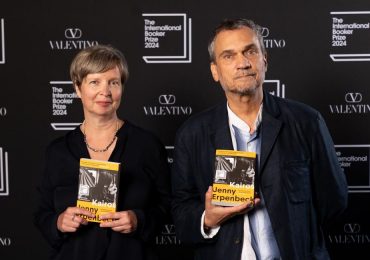The regional winners of the 2022 Commonwealth Short Story Prize, known as the ‘world’s most global literary prize’, have been announced—including Ntsika Kota from Eswatini.
The Commonwealth Short Story Prize, which is administered by the Commonwealth Foundation, is awarded annually for ‘the best piece of unpublished short fiction’ from any of the Commonwealth’s fifty-four member states. In addition to English, entries can be submitted in Bengali, Chinese, Creole, French, Greek, Malay, Portuguese, Samoan, Swahili, Tamil and Turkish.
29-year-old Kota made history as the first winner from Eswatini, collecting the prize for the Africa region with ‘and the earth drank deep’, a crime story set in ‘distant past of our species’.
Kota beat off competition from a strong field of shortlisted entrants from Africa, including Nigerian authors Dera Duru and Franklyn Usouwa, Ugandan author Charlie Muhumuza and Mubanga Kalimamukwento from Zambia.
Kota, who trained as a chemist and writes in his spare time, will go through to the final round of judging, and the overall winner will be announced on 21 June.
The judge representing the African region, Rwandan publisher Louise Umutoni-Bower, says:
‘“and the earth drank deep” is a universal story, one that reaches across cultures and generations. A story that uses African folktale in a way that remains true to form but is also accessible. It is a reminder of a time when storytelling had a prized place in social gatherings. I was personally transported back to the floor by my mother’s feet where I quietly listened to tales of Rwandan folk heroes and villains. The judges felt that in this story we could see ourselves and what it means to be human. The willingness of the writer to put “evil” on display without interrogation or judgement was commended.’
Chair of judges, Guyanese writer Fred D’Aguiar, comments:
‘This year’s regional winners offer a cornucopia of riches for readers globally from sources located around the world. These stories testify to the varied tones of fiction, from the oblique to the direct reference, with moments of character illumination to those associated with an imperilled planet. If a reader harboured any doubt about whether fiction is relevant to today’s world these stories answer with a riposte that resonates beyond a resounding “yes”. These stories fulfil a higher function as exemplars of the short story form: vibrant, memorable and indispensable.’
Commenting on his win, Kota says:
‘Being shortlisted was a shock of its own, but winning the regional prize as a rank amateur honestly strains the bounds of credulity. Even I would never write such an improbable storyline! I’m deeply grateful that something I wrote is being recognised at such a prestigious level.
‘When I write, my goal—or at least my ambition—is to get across the whole experience of existing in a place. Wherever you are reading this, how would you describe what it feels like to be you right now? How much of it is the sum of the sensory impressions you are paying attention to? How much of it is your emotional state? Or the memories that are freshest in your mind right now? My goal when I write is to weave a similar sort of tapestry of experience. One that allows you—hopefully, briefly—to exist in my imagination. You’ll be the judge of whether I’ve achieved that, but I’ll be satisfied if you’re entertained.’
The story was selected by an international judging panel, including chair D’Aguiar, Umutoni-Bower (Africa), Indian short story writer and novelist Jahnavi Barua (Asia), Cypriot writer and academic Stephanos Stephanides (Canada and Europe), Trinidadian novelist and former winner of the Commonwealth Short Story Prize Kevin Jared Hosein (Caribbean), and Australian Wiradjuri writer, poet and academic Jeanine Leane (Pacific).
The five regional winners this year hail from Eswatini, Fiji, Jamaica, Singapore and St Vincent and the Grenadines, and range in age from 29 to 69. Their stories tackle a range of themes including political upheaval, violence and ordinary people’s struggle to survive against impossible odds. They also tell of the compassion and unexpected friendships that can arise in the unlikeliest of places. Environmental catastrophe is a key theme in two of the winning stories, which range in genre from literary and historical fiction, speculative fiction and crime.
The five winning stories were chosen from a shortlist of twenty-six. This year’s award saw a record number of 6,730 entries from 52 Commonwealth countries.
2022 Commonwealth Short Story Prize winners
- Africa: ‘and the earth drank deep’ by Ntsika Kota (Eswatini)
- Asia: ‘The Last Diver on Earth’ by Sofia Mariah Ma (Singapore)
- Canada and Europe: ‘A Hat for Lemer’ by Cecil Browne (United Kingdom/St Vincent and the Grenadines)
- Caribbean: ‘Bridge over the Yallahs River’ by Diana McCaulay (Jamaica)
- Pacific: ‘The Nightwatch’ by Mary Rokonadravu (Fiji)
The five regional winners’ stories will be published online by the literary magazine Granta, ahead of the announcement of the overall winner, who will be announced in an online ceremony on Tuesday 21 June, and at a special event as part of the Commonwealth People’s Forum in Kigali, Rwanda.





